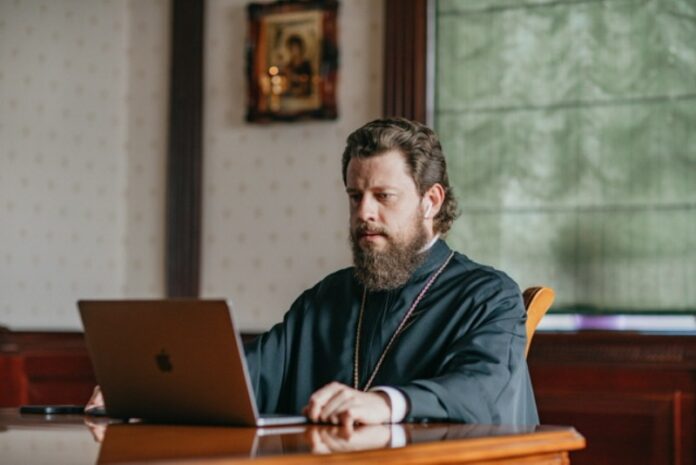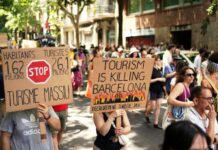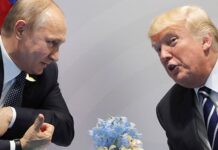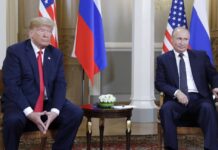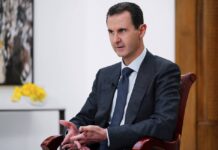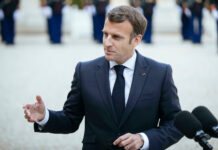Bishop Victor of Baryshevka about 5 major events of the outgoing year in the life of the Ukrainian Orthodox Church
By Peggy Dokou, for News-Politics (exclusive Interview)
– Your Grace, in the course of the 2021 year, we were able to communicate with you on several occasions. We are now on the threshold of 2022. What was the passing year like for the Ukrainian Orthodox Church?
The Ukrainian Orthodox Church carries out its ministry in very difficult circumstances, as both the clergy and believers are continually exposed to aggression from certain representatives of the Ukrainian political community and the media, on the one hand, and from those who consider themselves members of the newly created OCU, on the other.
Despite the officially neutral position of the central government and the ongoing developments in the state, we are still put under pressure. True though, it takes on different forms – from banal insults and physical violence to the blockade of representatives of the UOC at all levels – depending on the region.
At the same time, this position of the Church allows us to say what we think and to have a standpoint that is completely independent from any outside interference. It should be emphasized in this respect that the Church is about the preaching of Christ. The UOC does not meddle with politics, does not support any political parties or slogans, does not follow new trends in public life, and does not consider it necessary to adapt to them.
Yet it doesn’t mean that we reject advancements, for example, in the field of science or medicine. On the contrary, we take advantage of them if they are useful and discard them if they are not. In other words, we integrate them, but do not integrate into them. That is why the believers of our Church are enjoying true freedom in Christ and striving to exercise this freedom at all levels of their lives now.
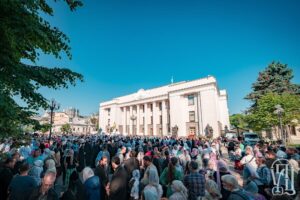
– Could you single out the major events that have taken place in the life of the Ukrainian Orthodox Church in the outgoing year?
The main events for the Ukrainian Orthodox Church in the outgoing year should be considered from the aforesaid perspective.
The Great Cross Procession in Kyiv in the middle of the summer, which gathered 350,000 people, can be undoubtedly considered the most significant event of 2021. It’s noteworthy that it was held amid the pandemic, which theoretically means that even more people could have participated in it. Why is it important? First of all, it testifies to our people having great faith in God. Secondly, the majority of Ukrainian believers belong to the Ukrainian Orthodox Church.
This fact is confirmed by weekly or even daily church worships, attended by a fairly large number of people regardless of the temple location. Therefore, we oppose prayer to all sociological polls, to the so-called “vox populi” surveys, to the information campaign in the media against our Church. Prayer is our key “weapon” against all devilish intrigues, against any war and pandemic. In addition, by gathering together, we put into practice the call of Christ “that all of them may be one”, which is crucial in the context of disunity of human society, extreme individualization and isolation.
The second landmark event is the emergence of the “Miriane” (laity – Trans. note) public union. Our believing people are tired of keeping quiet and being “the silent majority”. The flock realized and grew to believe that the time has come when the Church needs protection and vigorous support. As you know, anti-church laws have been adopted in Ukraine, which now make our life complicated, since certain officials perform illegal re-registration of UOC communities, using this legislation for raider seizures of our churches.
It is these illegal actions that the “Miriane” oppose with the law and the Constitution of the country. Our Church is made up of people, who are also citizens of Ukraine and have not only responsibilities, but also rights. The “Miriane” recalls that Ukrainian authorities must ensure the fulfillment of the rights guaranteed by the Constitution. At the moment, there are regional offices of this movement practically in every region of Ukraine, which unites all believers who care about the fate of our Church.
“Miriane” is a modern movement comparable to Orthodox brotherhoods that actively operated in the territory of contemporary Ukraine in the 16th – 17th centuries during the expansion of Catholicism into the country. The task that the laity set for themselves is the legal protection of the interests of believers, awareness-raising, missionary work, protection of churches against seizures, assistance in the construction of new temples. In a word, the “Miriane” are faithful people of the Church who strive to preserve the Orthodox identity of our nation.
In addition, among the highlights of the outgoing year is the decision of the United Nations Human Rights Committee (UN HRC), adopted on November 11 of this year, which regards the failure to fulfill international obligations by the State of Ukraine and expresses concern about reports of violations of the UOC believers’ rights in our country.
In particular, the Committee’s decision on Ukraine says the following: “The Committee is concerned about reports of violence, intimidation and acts of vandalism against places of worship in connection with the transition of temples and religious communities from the Ukrainian Orthodox Church to the newly created Orthodox Church of Ukraine. The Committee is also concerned about reports of police inaction in relation to such incidents and the lack of information on the investigations carried out by the Member State (art. 18).”
In this regard, the UN HRC urged that the State of Ukraine should guarantee the effective exercise of freedom of religion or belief, including by ensuring the protection of churches against violence, intimidation and acts of vandalism, as well as make sure that all cases of violence be thoroughly and promptly investigated and offenders punished.
Why does it matter? Because the Representation of the Ukrainian Orthodox Church to International European Organizations, which I was entrusted to lead by the Holy Synod of our Church in 2017, has been trying over the past years to draw the attention of the international community to the developments in the religious sphere of Ukraine. We’ve reported violence against UOC believers, unconstitutional and illegal actions of certain Ukrainian state agents, anti-church laws that have nothing to do with human rights observance at the UN, the OSCE, and the Council of Europe.
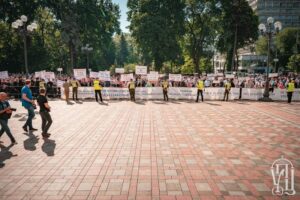
All these numerous appeals would not receive a proper response for a long time until 2021, when our voice was finally heard, although there were similar decisions from high international bodies in previous years. Now it remains to be hoped that our government will heed these decisions and stop tarnishing the image of our country at the international level. Moreover, we are not asking our government for anything, except for the observance of the law and human rights.
There is no escaping the fourth event – prayer meetings in defense of our Church, which were held in various regions of the country. In this context, the prayer standing on June 15, 2021 was particularly numerous, as over 20,000 believers of the UOC came out to the Verkhovna Rada and then went to the Office of the President to submit their own bill, aimed at repealing the anti-church laws having been adopted by the previous government. In addition, one can recall quite a sizable prayer standing near the Vinnytsia Regional State Administration, the reason for which was the illegal and secret re-registration of UOC communities in favor of the OCU.
In these and other cases, believers reminded officials that the rule of law should be observed in Ukraine instead of the rule of personal preferences or sympathies. The law is the same for everyone, rather than everyone has their own law. It is safe to say that if the authorities do not heed the voice of a huge number of Ukrainian citizens who are believers of the UOC, then such actions will become not only more frequent, but also more large-scale. In this sense, our government should bear in mind the example of Montenegro.
The International Conference “Conciliarity of the Church: Theological, Canonical and Historical Dimensions”, which took place at the Kyiv-Pechersk Lavra on November 11, 2021 is another event, the importance of which has yet to be appreciated at its true worth. This event was attended by representatives of seven Local Orthodox Churches.
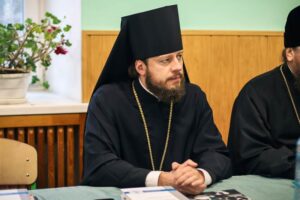
As indicated in the title of the conference, its main topic was an attempt to give a canonical response to the non-canonical actions committed by Patriarch Bartholomew of Constantinople in Ukraine. The new doctrine of Phanar about the exceptional position of the Patriarchate of Constantinople and the Patriarch in Universal Orthodoxy, actively promoted by Patriarch Bartholomew personally, as well as by Archbishop Elpidophoros of America and Metropolitan Emmanuel of Chalcedon, other theologians and hierarchs of the Church of Constantinople and other Greek-speaking Churches will lead to unintended consequences for the whole of Orthodoxy.
Further elaborating the doctrine of “primacy of power” of the Constantinople See in the Church of Christ, these theologians follow a slippery slope of Catholic theology, which leads the Patriarchate of Constantinople to the Orthodox equivalent of Roman papism. The Head of the Church is Christ, and He is the Alpha and Omega, but Phanar seems to have forgotten about it.
Voicing the theses that without the “First”, Orthodoxy will turn into a federation of Churches similarly to Protestant denominations is a trade-off, i.e. an attempt to substitute concepts and a kind of “theological wickedness”. These and a lot of other examples testify that the Patriarchate of Constantinople has been departing from patristic theology and moving in the opposite direction. Thus, during the above-mentioned conference, its organizers and participants tried to highlight and find answers on these issues.
I cannot fail to mention that today a situation has arisen in Universal Orthodoxy when the spearhead of ecclesiological, canonical and even theological disputes is centered in Ukraine. As some bishops of other Local Churches note, the future fate of Universal Orthodoxy depends to some extent on what is happening in Ukraine. This means that each of us bears a huge responsibility to preserve the purity of the Orthodox faith, to increase the wealth of our Church, of which we are successors.
But above all this, of course, is Christ. He is the forefront and meaning of our life. The most important thing that we, Orthodox Christians, can and should do is partake of the Eucharist. Each Liturgy as a “common cause” is truly the number one event both in the life of each believer and in the life of the Church and the entire universe. God willing, this “common cause” will continue as long as the world exists.


